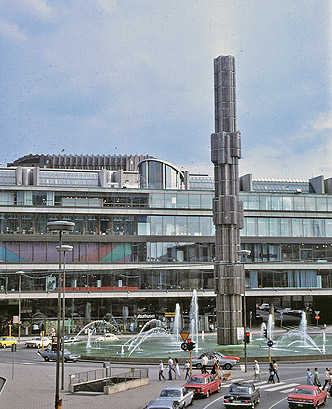![]()
Over the course of the last four centuries (1600-present), the world had changed dramatically in its outward appearances. For example, horse-drawn carriages are no longer used as the principle vehicle of transportation; we have cars and airplanes now. Most people no longer read newspapers for their news; we have television, radio and computers. And we have smartphones! But are we smarter?
And looking at the most recent events of world history since 1945, it is clear that another phase of the Industrial Revolution has swept across the world, the technological revolution. This revolution has been marked by the invention of the transistor, the silicon chip, the integrated circuit and then the computer. These devices have allowed revolutionary breakthroughs in communications, information access and television, which have all served to allow fast communication making the world seem smaller and smaller. We might say that it is a social media revolution that is now sweeping the world, and as with most revolutions, the outcomes are far from certain.
In addition to the technology advances of the past fifty years, there have been stunning medical, biological and agricultural innovations. We have all sorts of treatments for diseases that were not available fifty years ago, and with the DNA revolution, we have more of an understanding of how the biological world works. (But there are a lot of dangers there.) People grow larger, in both height and width, than they did a century ago, and people live a lot longer than they did a century ago.
But how much has changed in terms of human rights protections and the political process over the last four hundred years? How much has changed in terms of human empathy and racial and ethnic integration? How much has democracy spread in the world? Human rights and democracy are clearly not an integral part of many societies and countries in the world in the twenty-first century. See my notes, which we've already read in this course, on
And what about environmental and wealth distribution issues?
Some recommended online lectures and websites
- An Evening with Salman Rushdie (2006)
- At Boundless World History, see the sections on the the 21st Century (well done).
- Future Timeline
- United Nations
- For extra credit please suggest to your instructor a relevant website for this unit of the course. Send the title of the site, the URL and a brief explanation why you find the information interesting and applicable to the material being studied in this unit.
